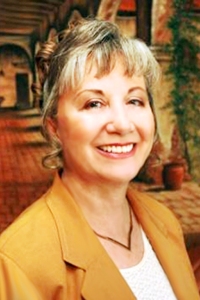
![]()
Last month we heard from Carol Kent about her remarkable journey to find hope and joy after relinquishing her son to the Florida prison system. This month we journey with novelist Kathi Macias, who, in poignant rawness, explores another mother’s pilgrimage to come to grips with the inextricable link between her mother’s murder and her son’s incarceration.
Excerpt from My Son, John
“I was in prison and you came to Me . . .” (Matthew 25:36).
Tick, damn it, tick!
Oblivious to the fact that I had just thought a word I would never say out loud, I glared through bloodshot eyes at the large, round, schoolroom-type clock that was the sole decoration on the cold gray wall behind the metal chair where John sat. Dressed in an orange jumpsuit and holding a phone to his ear, he gazed at me through the glass partition, no doubt knowing that I avoided eye contact because the pain was just too great.
Still staring at the offensive timepiece on the wall, I demanded silently, Do you think just because you don’t make any noise that I don’t know what you’re doing, that I don’t realize that with every sweeping circle you’re stealing more and more of my son’s life?
Oh, God, if only there were a window in here! If I could just reach through this glass and touch him!
The tears came then, and there was nothing I could do to stop them. I pulled my vision from the clock and caught a glimpse of John’s anguished, sweat-beaded face before squeezing my eyes shut in a vain attempt to block out the swell of emotions that threatened to drown me. I had to stop this denial and refocus my efforts and energy on my son. He would never survive this nightmare if I didn’t; none of us would.
I forced my eyelids open, wiping the tears from my cheeks and wishing I had been allowed to bring my purse in with me. But, of course, everything personal had to be left behind before I was admitted to the visiting area. You’d think those in charge would realize a mother’s need for a tissue in such a situation.
Slowly, I cracked my lips into what I was sure was a wooden smile. “You look good,” I lied, knowing he knew better but hoping to convince myself. “Are they treating you all right . . . feeding you, and—”
Trembling but quite obviously trying hard not to show it, he pressed the palm of his free hand against the glass, cutting off my pointless questions. “I’m fine, Mom. Honest. I told you that last time. And . . . please, you don’t have to come here. I don’t want you to come here. Can’t you understand that?”
How could I understand that my son didn’t want me to visit him and support him when he’d been accused of something so horrific it was beyond comprehension? How could I understand anything anymore? Not only was my son locked up with dangerous criminals, but he was losing weight and I could see he wasn’t well. He needed me.
“I want to come,” I answered. “I have to. I’ve never abandoned you before. Why would you think I would now—especially now?”
The pain and fear in his dark blue eyes flickered before fading to dull. He pressed his lips together and shook his head. “I have to go, Mom. Time’s about up anyway. I . . . hate talking to you like this . . . seeing you this way.”
I watched his Adam’s apple bob slightly as he swallowed and then said, “I love you, Mom. You know that. Dad and Sarah, too.”
After a brief hesitation, he removed his palm from the glass, hung up the phone, and stood to his feet. Immediately a corrections officer was at his side, escorting him from the room.
Still pressing the receiver to my ear, I whispered, “You didn’t even say goodbye, John. You didn’t say goodbye.”
At the thick metal door, just below and to the right of the silent wall clock, John stopped, turning slightly as his armed escort unlocked the heavy barrier. Glancing back at me, he smiled ever-so-slightly with that frightened expression I remembered from when he was a little boy, the one he’d worn to assure me he was all right as he walked on skinny, shaky legs into his kindergarten room on the first day of school. As I had that day standing in the hallway outside his classroom, I now did my best to return his smile. Then he turned his back to me and shuffled with shackled ankles through the passageway.
So little had changed in the eighteen years since that first day of school—and yet the world my husband and I had known since our oldest child was born twenty-three years earlier had exploded and vanished, washed away in tears . . . and in blood. Nothing would ever be the same again.
John’s kindergarten smile had been his signal to me that he could handle things and I should leave. With legs of lead and a heart even heavier, I forced myself to honor his wishes.
Copyright 2009 by Kathi Macias. Reprint permission granted by Sheaf House Publishers.